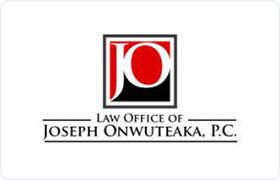Pattonville Real Estate Other Lawyer, Texas
Sponsored Law Firm
-
 x
x

Click For More Info:
-
Law Office of Joseph Onwuteaka, P.C.
8323 Southwest Fwy Suite 650 Houston, TX 77074» view mapSlip & Fall Accident Fighting Fearlessly For Your Rights
I'm committed to providing experienced and tenacious legal representation. I will fight for the best possible outcome in your case & won't give up, even when things get tough.
800-960-3430
Includes: Commercial Leasing, Commercial Real Estate, Condominiums, Conveyancing, Housing & Urban Development, Premises Liability, Residential Real Estate, Title Insurance
Not enough matches for Pattonville Real Estate Other lawyer.
Below are all Pattonville Real Estate lawyers.
Jerry L. Coyle
Construction, Litigation, Business & Trade, Personal Injury
Status: In Good Standing Licensed: 42 Years
Sydney Snelling Young
Commercial Real Estate, Wills, Elder Law, Business & Trade
Status: In Good Standing Licensed: 32 Years
Nicholas Lee Stallings
Construction, Workers' Compensation, Credit & Debt, Personal Injury
Status: In Good Standing Licensed: 9 Years
Brady Alan Fisher
Personal Injury, Family Law, Commercial Real Estate, Criminal
Status: In Good Standing Licensed: 47 Years
Philip B. Smith
Commercial Real Estate, Wills, Business & Trade, Business
Status: In Good Standing Licensed: 55 Years
D. B. Hutchison
Commercial Real Estate, Real Estate, Wills, Estate
Status: In Good Standing Licensed: 55 Years
James Mclaughlin Donald Biard
Military, Commercial Real Estate, Wills, Business & Trade
Status: In Good Standing Licensed: 19 Years
 Joseph Onwuteaka Houston, TX
Joseph Onwuteaka Houston, TX Practice AreasExpertise
Practice AreasExpertise
